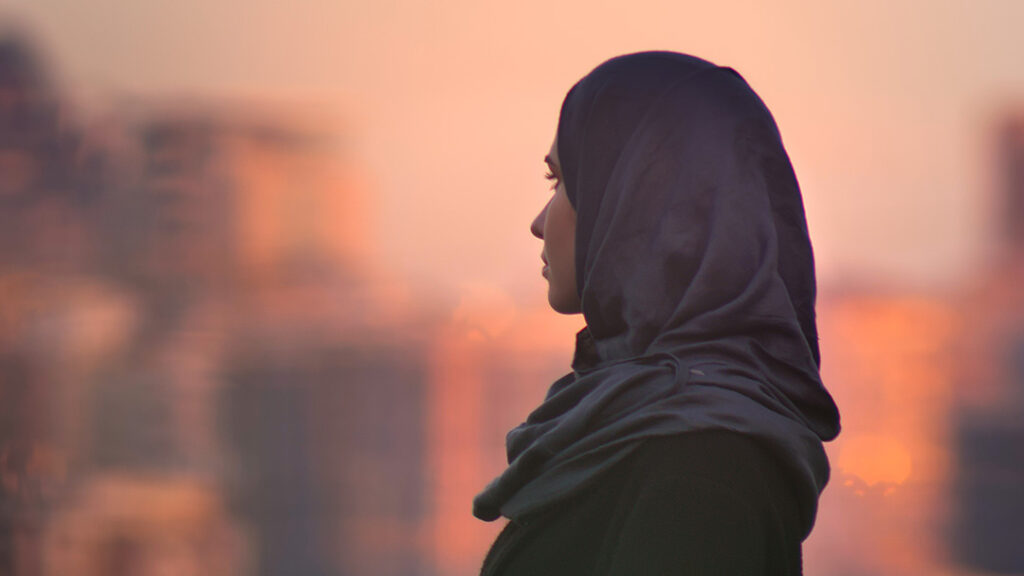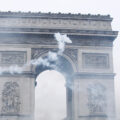The crossroads of culture and sports: The headscarf in France at the Olympics
The crossroads of culture and sports: The headscarf in France at the Olympics
A headscarf ban in France at the upcoming Olympics sparks global debate on freedom of expression, religious rights, and the true spirit of the Games.
The headscarf in France and the Olympic spotlight
The Olympics have long been a stage that transcends mere athletic prowess. It has become a melting pot where cultures, politics, and societal norms collide. One of the latest manifestations of this cultural confluence is the heated debate surrounding the wearing of the headscarf in France, a debate reignited by France’s contentious stance on the garment.
The controversy surrounding the headscarf in France at the Olympics
France has been deeply entangled in discussions centred on secularism, exemplified by its rigorous policies on religious symbols.[1] This focus has particularly been on Islamic garments such as headscarves or hijabs.[2] The Olympics spotlight a myriad of cultures and nationalities. Therefore, France’s decision to prohibit its athletes from wearing the hijab, especially as it prepares to host its first Olympics in 100 years, has ignited a global conversation about freedom of expression, religious rights, and women’s rights.[3]
Unveiling the controversy of the headscarf in France
France’s strict adherence to secularism, known as laïcité, has long been a hotbed of contention.[4] In the Olympic arena, athletes from diverse backgrounds participate. This includes Muslim women, some whom opt to wear their headscarves as a symbol of their faith. France’s policy to ban the hijab for its own athletes at the Olympics, which it will host this year, has elicited a wave of international critiques. This has prompted introspection on whether the foundational spirit of the Olympics—unity amidst diversity—is under threat.[5]
An athlete’s perspective
To numerous athletes, donning a headscarf is neither a sign of subjugation nor merely a cultural obligation. It stands as a choice, a proclamation of their individuality. It represents a means to challenge preconceived notions and motivate others, asserting the harmonious coexistence of faith and athleticism.
Athletes like Sarah Attar, a US-born runner representing Saudi Arabia[6] [7] and Kimia Alizadeh,[8] an Iranian Taekwondo competitor, encapsulate this melding of religious conviction and sports dedication. Their journey underscores the shattering of pre-existing barriers for women in the sporting world.
International response
The global community, buttressed by numerous human rights organisations, has expressed concerns over France’s secular laws encroaching upon individual freedom. In particular within a setting like the Olympics, which champions inclusivity and diversity. There is a prevailing sentiment of apprehension: should a nation’s values eclipse personal liberties? Ought the Olympics not be a platform fostering mutual admiration and comprehension among varied cultures?
The International Olympic Committee underscores principles like non-discrimination and champions ethical governance.[9] Yet, these very tenets seem to be at odds with the French secular perspective, potentially undermining the true ethos and integrity of the Olympic games.
France’s stance
The French administration contends that their laws aim to perpetuate secularism, nurturing a collective identity and averting religious segmentation. Their objective, they claim, is to uphold a religion-neutral public realm.[10]
However, detractors argue that such a strict interpretation of secularism disproportionately impacts Muslim women, curtailing their right to showcase their religious convictions and possibly deterring them from engaging in public activities, including sports events like the Olympics.[11]
Secular strife: Olympic crossroads
The ongoing discourse on French secularism and the prominence of the headscarf in France during the Olympics is not just a superficial clash between attire norms and legislative frameworks. It mirrors the more profound dilemma straddling individual freedoms and societal constructs. It underscores the imperative to assess how inclusive our global community is and if platforms like the Olympics truly represent a nexus where diverse cultures, traditions, and principles can cohabit and receive mutual respect.
The Olympics epitomise the aspiration for a world where individuals, despite their varied backgrounds, converge under the principles of sportsmanship and collective humanity. The tension between French secularism and the multicultural spirit of the Olympics calls for introspection on the alignment of differing principles, beliefs, and the genuine heart of the Olympic ideal.
Learn more about religion and society on the EARS Dashboard
Sources
[1] France’s century-long crusade against religious symbols at school, from the crucifix to the abaya
[2] Who Gets to Wear a Headscarf? The Complicated History Behind France’s Latest Hijab Controversy
[3] France’s hijab ban for its athletes at 2024 Olympics draws international condemnation.
[4] The challenges and consequences of covering laïcité – EARS
[5]UN criticises France’s ban on its Olympic athletes wearing headscarves
[6]Two Female Runners to Compete in the Olympics for Saudi Arabia
[7] Sarah Attar is first Saudi Arabian woman in Olympic track and field | Olympics 2012: athletics | The Guardian
[8]Iran’s only female Olympic medallist says she has quit country
[10] French secularism explained – France 24
[11] Stanford scholars report French headscarf ban adversely impacts Muslim girls






